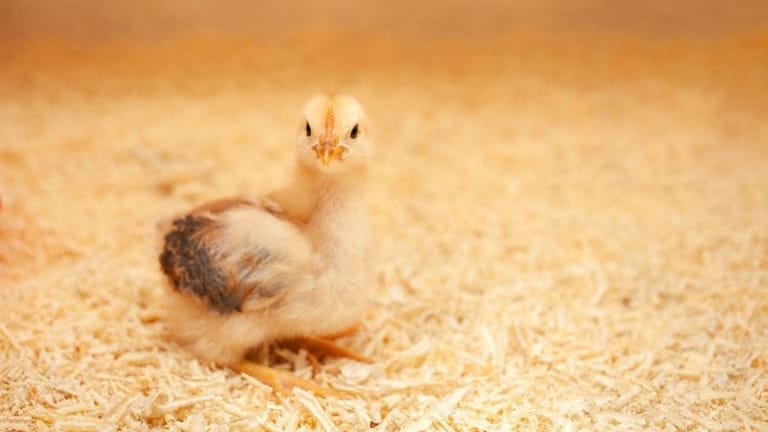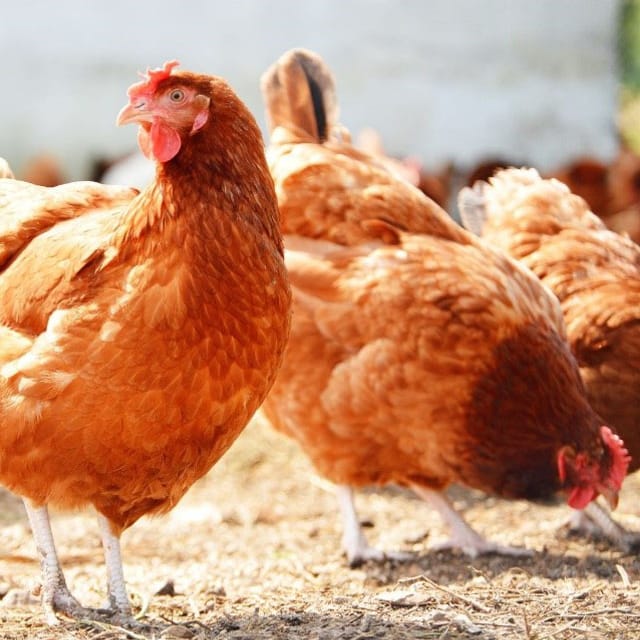
Enhancing Poultry Health with Wet Litter Management
Proper bedding management is critical to the welfare of the bird, acting as a cushion, insulator and absorbent. Flushing, an increase in water excretion, often results from nutritional imbalances and can lead to pathological changes. This prolonged imbalance can be caused by factors such as non-starch polysaccharides, animal protein, fatty acids, antinutritional factors, or toxins in the diet. Inflammation of the kidney or gastrointestinal mucosa exacerbates the problem by interfering with water and nutrient transfer. Wet litter can also contribute to foot problems, including dermatitis and pododermatitis. Proper litter management and maintaining optimal environmental conditions are essential to preventing these conditions. Common pathogens such as Salmonella, E. coli and C. perfringens thrive in wet litter conditions, posing a risk to bird health and food safety.

Site of Action: The Gut
Monoglycerides, specifically medium-chain monoglycerides (MCMG), have garnered significant attention in poultry production as effective antimicrobial agents. The unique structure and biophysical properties of MCMG make them promising candidates for enhancing biosecurity and promoting animal health in the face of bacterial and viral challenges. Derived from medium-chain fatty acids (MCFA), MCMG offer distinct advantages over traditional antimicrobial compounds.
The micellar form of MCMG exhibits membrane-disruptive properties, particularly targeting the lipid membranes enveloping bacteria and viruses. In the context of poultry production, where infectious diseases can have severe economic implications, MCMG offer broad-spectrum antimicrobial activity against various pathogens.
Due to their antimicrobial properties, MCMG have the potential to inhibit the growth of Clostridium perfringens and contribute to the prevention of Necrotic Enteritis. The ability of MCMG to disrupt the lipid membranes of bacteria could play a role in inhibiting the growth and toxin production of Clostridium perfringens.
As the poultry industry seeks sustainable alternatives to antibiotic use, mono- and diglycerides emerge as promising candidates for mitigating NE and promoting overall gut health. Probiotics play a pivotal role in fostering a robust gut microbiota in birds by supporting the equilibrium of beneficial bacteria. This microbial balance is instrumental in enhancing digestion and optimizing nutrient absorption. In the realm of poultry production and its challenges with wet litter, probiotics emerge as key contributors to avian gut health. By mitigating the potential for digestive disorders, probiotics effectively diminish the likelihood of wet litter issues. Their positive impact extends to preventing diarrhea and elevating the overall welfare of the poultry flock.
Electrolytes, on the other hand, are essential for maintaining proper hydration and electrolyte balance in poultry. During periods of heat stress or disease challenges, birds may experience dehydration and electrolyte imbalances, which can contribute to wet litter problems. Supplementing poultry with electrolytes helps ensure adequate hydration and supports vital physiological functions. Proper electrolyte balance is crucial for maintaining osmotic equilibrium and preventing excessive water retention in the litter. By addressing dehydration issues, electrolyte supplementation can indirectly contribute to mitigating wet litter challenges in poultry production.
In summary, probiotics and electrolytes play distinct yet complementary roles in addressing wet litter problems in poultry production.
XVET’s Novosol, enriched with mono- and diglycerides of short- and medium-chained fatty acids (MCMG), offer a comprehensive approach to gut health. This includes microbiome modulation, improved gut integrity, supports nutrient absorption, and anti-inflammatory effects.
Probiodrink is composed of probiotics to support gut health, reducing the likelihood of digestive issues that contribute to wet litter, while electrolytes help maintain proper hydration and electrolyte balance, indirectly aiding in the prevention of wet litter challenges during stressful conditions.
